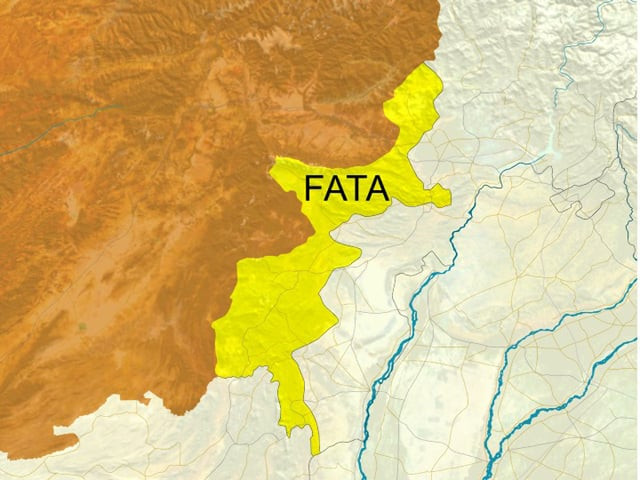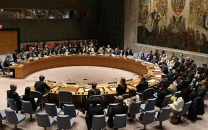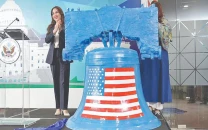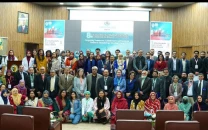FCR empowered to hear FATA-related cases
Says ordinary courts have right to hear or decide appeals

The Peshawar High Court has ordered to send various appeals related to erstwhile Federally Administered Tribal Areas (Fata) to the relevant forum, stating that the cases that arose during the Frontier Crimes Regulations (FCR) should be dealt with by the relevant forums under the same procedure, while the ordinary courts have the right to hear or decide these appeals.
A three-judge larger bench comprising Justice Lal Jan Khattak, Justice SM Atiq Shah and Justice Syed Arshad Ali issued a detailed verdict on various writ petitions, appeals and cases of tribal districts, including espionage related to Osama bin Laden and anti-state crimes.
The case of Dr Shakeel Afridi, who was convicted in the summer, will also be heard before the FCR commissioner.
According to the court’s decision, four categories of cases were brought before them, in which one was filed before the establishment of Fata Tribunal.
Similarly, in the case of Khyal vs Khan Gul, the political agent pronounced the sentence on December 14, 2016, which was challenged by Gul before the Kohat Division commissioner and later transferred to the high court.
In the third category are those cases which were filed before the 25th Amendment and in which the trial court did not give any decision under the FCR and were transferred to the jirga.
After the 25th Amendment, these cases were transferred to ordinary courts, where the accused were acquitted in most cases because the prosecution failed to present evidence.
In the fourth category are the cases in which political agents have given decisions. According to the three-member bench, through amendments in the Constitution, the country's laws were extended to the tribal districts, while the Pakistan president also issued various regulations related to Fata so that peace could be maintained in the region.
Erstwhile Fata consisted of seven agencies and six frontier regions where the administrative matters were conducted under centuries-old traditions. However, the FCR enacted in 1901 had always been questioned.
Later in 2018, the Fata Interim Governance Regulation was introduced which was challenged in the court and the court declared the move of giving judicial powers to the commissions as unconstitutional.
According to the court decision on June 5, 2018, Fata was merged with Khyber-Pakhtunkhwa through the 25th amendment, after which the courts were also expanded to these areas, thus regular courts were established for these areas and a large number of erstwhile Fata cases were transferred to these courts.
According to the larger bench, the FCR 1901 had certainly been repealed after the 25th amendment, but the cases and cases pending under this law at that time should be dealt with under the same old procedure, while the cases under the new law were not transferred to the courts.
“The bench may, if it deems necessary, refer the same to the district public prosecutor of the concerned district to scrutinise the record and remand it to the police for re-investigation and issue of appropriate challan.”
The three-member bench directed the pending civil cases to be heard in the concerned courts and declared that the civil cases disposed of by the district courts were null and void and ordered to send the appeals to the concerned courts so that they could be disposed of under the relevant forum – FCR.



















COMMENTS
Comments are moderated and generally will be posted if they are on-topic and not abusive.
For more information, please see our Comments FAQ